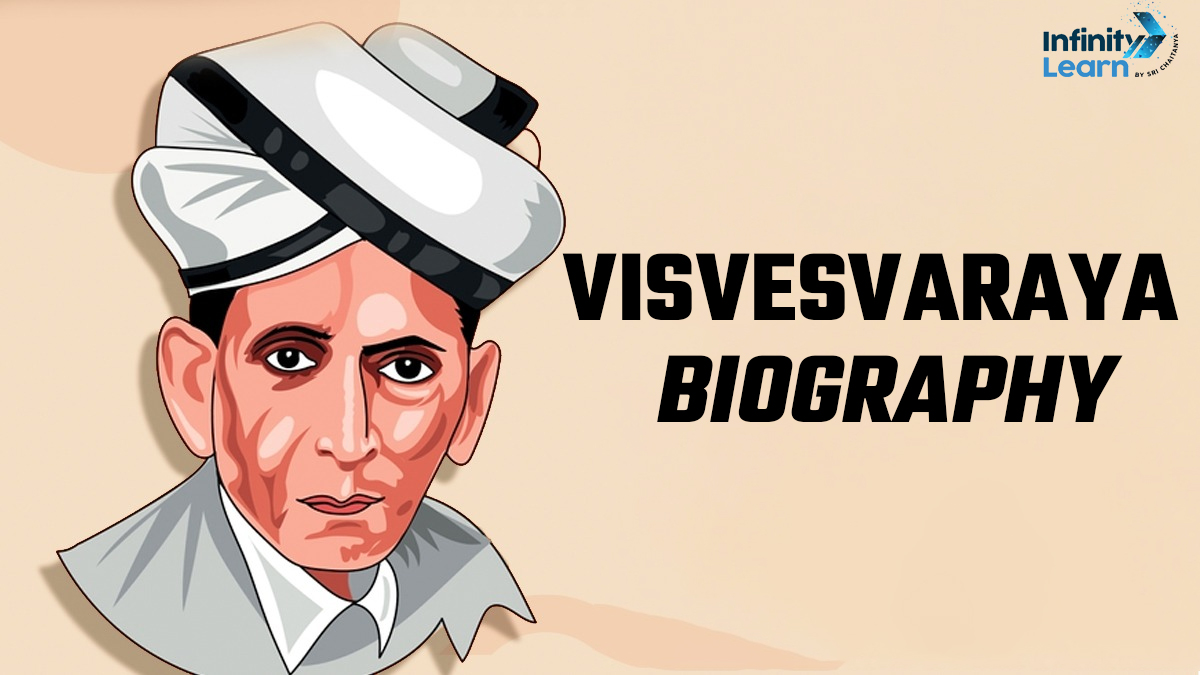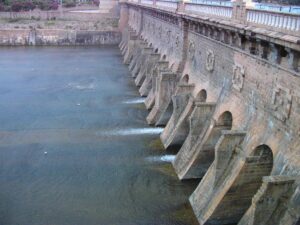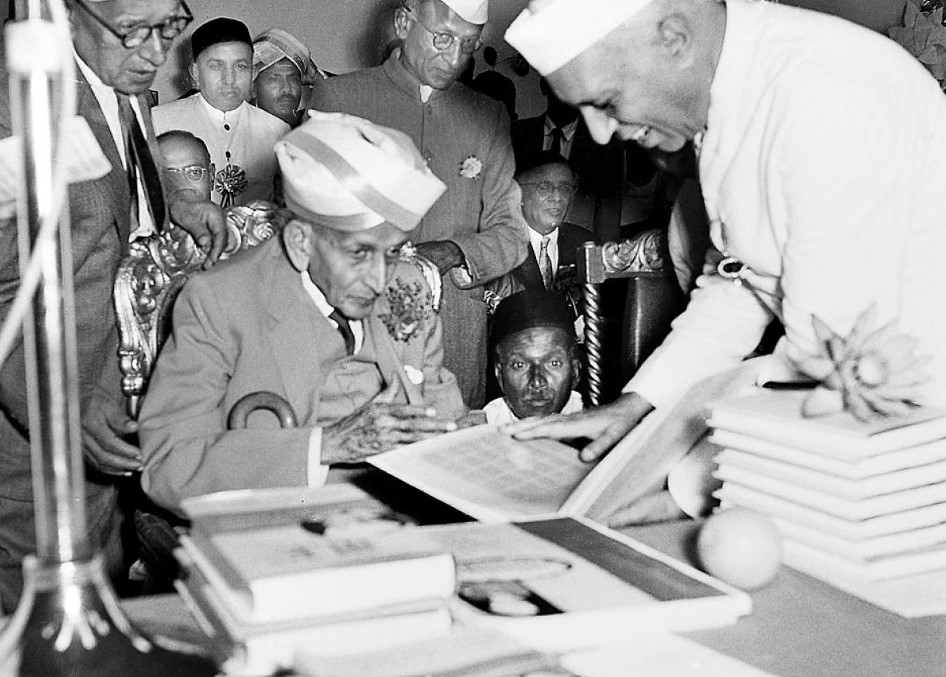Table of Contents
About Mokshagundam Visvesvaraya
Sir M. Visvesvaraya was born on September 15, 1861, in Muddenahalli village, Karnataka. His early education took place in his hometown and later in Chikballapura and Bangalore. His father, a Sanskrit scholar, priest, and Ayurvedic physician, passed away when Sir M. Visvesvaraya was 15 years old. Following his father’s demise, his maternal uncle brought him to Bangalore, where he continued his education at the Wesleyan Mission School. Despite facing personal challenges, including the loss of his second wife and subsequent short-lived marriages, Sir M Visvesvaraya’s family background as the son of a rich Kodagu bureaucrat and his early education in Karnataka laid the foundation for his remarkable journey as a renowned engineer and statesman.
Mokshagundam Visvesvaraya Education
Mokshagundam Visvesvaraya received his early education in his hometown of Muddenahalli and Bangalore. He later earned a Bachelor of Arts (BA) degree from the University of Madras.
After completing his BA, Visvesvaraya pursued a diploma in civil engineering at the College of Science in Pune (now College of Engineering, Pune). He ranked first in the L.C.E. and F.C.E. examinations (equivalent to B.E. examination) in 1883.

Career Timeline of Sir M Visvesvaraya
- Worked as an Assistant Engineer in Bombay in 1885.
- Served in Nasik, Khandesh (mainly in Dhule), and Pune.
- In 1894, worked for the Municipality of Sukkur in Sind, where he designed and implemented waterworks.
- Became Executive Engineer in Surat in 1896.
- Worked as Assistant Superintending Engineer in Pune from 1897 to 1899, and visited China and Japan in 1898.
- Became Executive Engineer for Irrigation in Pune in 1899.
- In 1901, worked as a Sanitary Engineer in Bombay and was a member of the Sanitary Board. He gave evidence to the Indian Irrigation Commission.
- In 1903, designed and built automatic gates at Lake Fife Storage Reservoir and introduced a new irrigation system called the “Block System.”
- Represented the Bombay Government at the Simla Irrigation Commission in 1904 and was assigned special duties in 1905.
- Became Superintending Engineer in 1907 and visited Egypt, Canada, the United States, and Russia in 1908.
- Worked as a Consulting Engineer for Hyderabad/Nizam State, overseeing engineering works on the Musi river and dealing with the Hyderabad floods in 1909.
- Retired from British Service in 1909.
- Became Chief Engineer and Secretary to the Government of Mysore in 1909.
- Served as Dewan of Mysore, managing Public Works and Railway in 1913.
- Served on the Board of Directors of Tata Steel from 1927 to 1955.
Mokshagundam Visvesvaraya Projects
Mokshagundam Visvesvaraya, also known as Sir M. Visvesvaraya, was a prominent Indian civil engineer, statesman, and the 19th Diwan of Mysore. His notable projects include:
- Krishna Raja Sagara Dam: Visvesvaraya served as the Chief Engineer for the construction of the Krishna Raja Sagara Dam, a significant project built over the Kaveri River.
- Hyderabad Flood Control Scheme: He played a crucial role in developing the flood control system for Hyderabad, demonstrating his expertise in managing water resources and protecting urban areas from floods.
- Visakhapatnam Port Protection: Visvesvaraya’s engineering practice extended to safeguarding the Visakhapatnam port from coastal erosion, showcasing his innovative solutions in coastal engineering.
- Block Method of Irrigation: He introduced the block method of irrigation, optimizing water distribution and usage in agriculture, benefiting numerous villages and populations.
- Automatic Floodgates: Visvesvaraya designed and patented automatic floodgates, exemplified by those installed at the Khadakwasla reservoir in Pune, Maharashtra, showcasing his pioneering work in water management and flood control.

M Visvesvaraya Awards and Honors
Sir M. Visvesvaraya, a renowned engineer and statesman, received numerous prestigious awards and honors throughout his illustrious career. Some of the notable awards and honors bestowed upon him include:
- Companion of the Order of the Indian Empire (CIE): In 1911, King Edward VII appointed Visvesvaraya as a Companion of the Order of the Indian Empire for his contributions.
- Knight Commander of the Order of the Indian Empire (KCIE): In 1915, during his tenure as Dewan of Mysore, Visvesvaraya received a Knighthood and was designated as a Knight Commander of the Order of the Indian Empire by King George V.
- Bharat Ratna: After India gained independence, Visvesvaraya was honored with India’s highest civilian honor, the Bharat Ratna, in 1955, recognizing his exceptional services to the nation.
- Honorary Memberships and Fellowships: Visvesvaraya received honorary memberships from prestigious institutions like the Institution of Civil Engineers in London and a fellowship from the Indian Institute of Science.
- Honorary Degrees: His exemplary achievements earned him several honorary degrees, including D.Sc., LL.D., and D.Litt. from eight distinguished universities across India.
- Presidency of Indian Science Congress: In 1923, he assumed the presidency of the Indian Science Congress, showcasing his leadership in the field of science and technology.
- Institutional Honors: Several educational institutions and establishments were named in his honor, including Visvesvaraya Technological University in Belagavi, University Visvesvaraya College of Engineering in Bangalore, Sir M. Visvesvaraya Institute of Technology in Bangalore, and Visvesvaraya National Institute of Technology in Nagpur.
Sir M Visvesvaraya Photos

Sir M Visvesvaraya Biography – Later Life and Final Years
In his later life, Sir M. Visvesvaraya continued to play a pivotal role as an advisor and planner, focusing on promoting self-reliance and nation-building in India. is contributions to engineering, education, and nation-building are celebrated annually on Engineer’s Day in India, a testament to his enduring impact on the country’s development. His principles of self-reliance, innovation, and dedication to progress serve as a guiding light for aspiring engineers and nation-builders, honoring his remarkable legacy for years to come.
Sir M. Visvesvaraya passed away on April 14, 1962, at the age of 100 in Bengaluru. His death marked the end of an era, but his legacy as a pioneering engineer, visionary statesman, and nation-builder continued to inspire generations of Indians.
Facts to Know About Mokshagundam Visvesvaraya
- Birth and Early Life: Mokshagundam Visvesvaraya was born on September 15, 1861, in Muddenahalli, Karnataka, India.
- Education: He completed his Bachelor of Arts from the University of Madras and later pursued civil engineering from the College of Engineering, Pune.
- Engineering Marvels: Known for his innovative designs and engineering projects, he played a key role in the construction of the Krishna Raja Sagara Dam in Mysore and the implementation of irrigation and flood control systems.
- Dewan of Mysore: Visvesvaraya served as the Dewan (Prime Minister) of Mysore from 1912 to 1918, during which he contributed significantly to the state’s development.
- Awards and Honors: He was awarded the Bharat Ratna, India’s highest civilian award, in 1955 for his contributions to engineering and public service.
- Knighted: In recognition of his services, the British Government knighted him as a Knight Commander of the Order of the Indian Empire (KCIE) in 1915.
FAQs on Sir M Visvesvaraya Biography
Who was Sir M. Visvesvaraya?
Sir M. Visvesvaraya was a renowned Indian civil engineer and statesman who played a pivotal role in the development of modern India.
Was Sir M. Visvesvaraya a Brahmin?
Yes, Sir M. Visvesvaraya was born into a Tamil Brahmin family.
Which Dams Did Visvesvaraya Build?
Sir M. Visvesvaraya is known as the architect of the Krishna Raja Sagara Dam in Mysore.
Who is the Father of Engineering?
Sir M. Visvesvaraya is often referred to as the Father of Modern Mysore for his contributions to the state's development.
Who was the First Engineer of India?
The title of First Engineer of India is generally attributed to Sir Mokshagundam Visvesvaraya.








